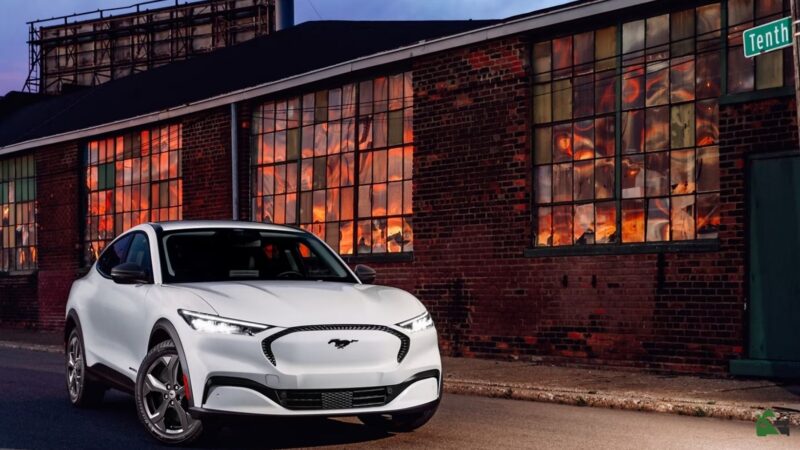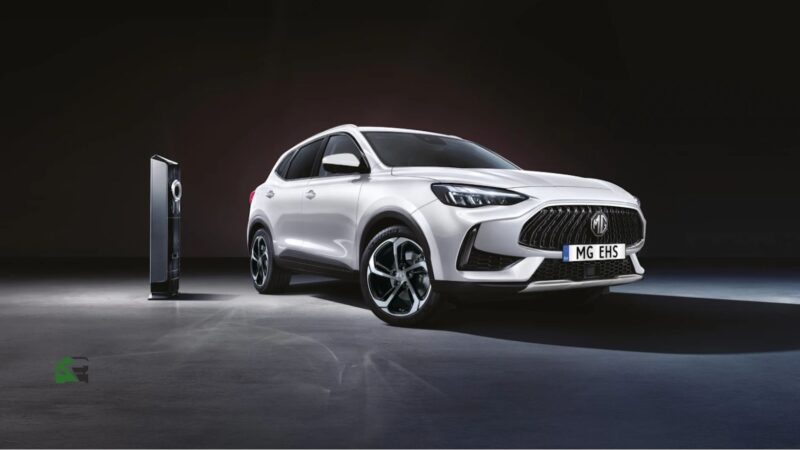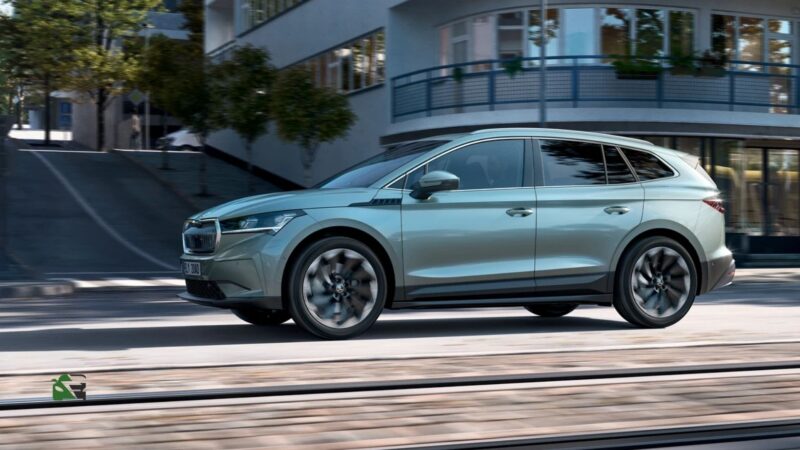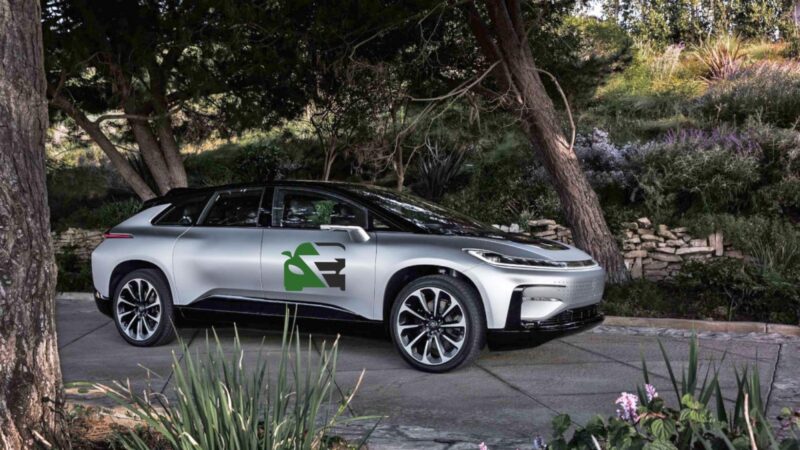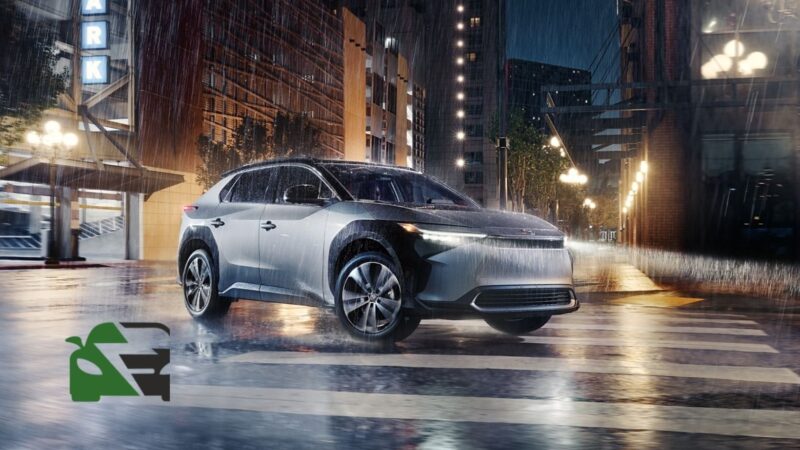Upcoming Electric Cars Under 8 Lakh Rupees
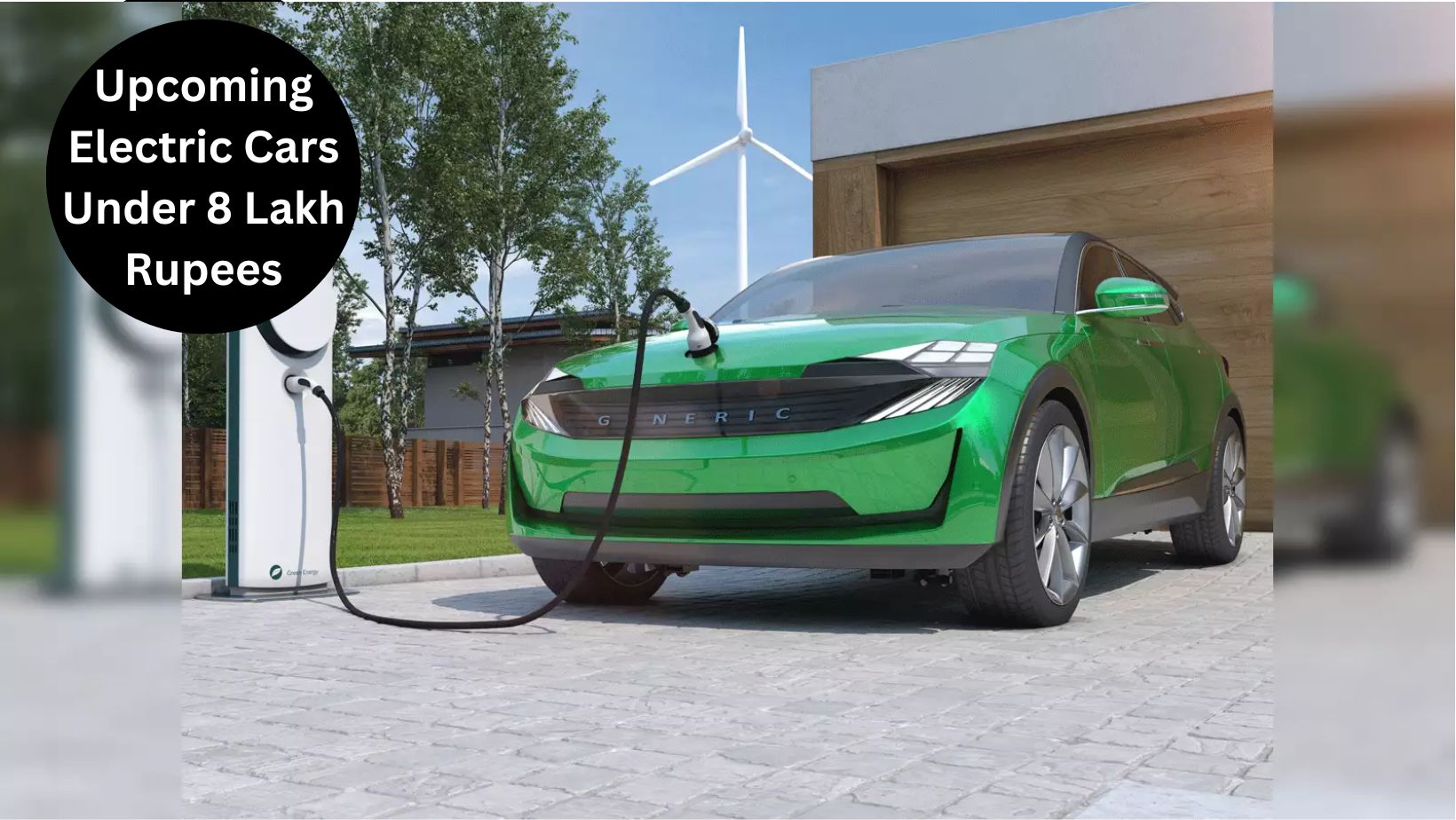
In the constantly shifting terrain of the automotive sector, the excitement surrounding electric vehicles has peaked. Prioritizing sustainability, economic viability, and cutting-edge technology, manufacturers are currently directing their efforts towards crafting economical electric cars. Within this in-depth exploration, we plunge into the dynamic realm of forthcoming electric vehicles,Upcoming excellentelectricar Electric Cars Under 8 Lakh Rupees. Our journey encompasses an exploration of their distinctive features, advantages, and the potential transformative influence these vehicles might wield over the landscape of the Indian automotive market.
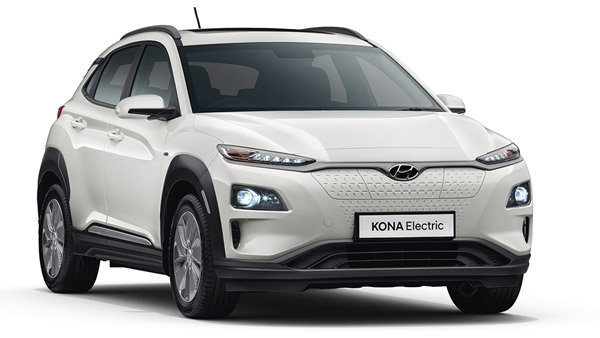
Read more.. Fire Up the Rumor Mill: Subaru Concept Car Pays Homage to Rallying Legacy
The Green Revolution Gathers Speed
Over the recent years, the automotive industry has undergone a significant shift towards environmentally conscious transportation, with electric vehicles (EVs) spearheading this transformative wave. Propelled by mounting concerns about environmental impact and the urgent need to reduce dependence on traditional fossil fuels, the momentum for embracing electric mobility has gained considerable traction.
Affordability as the Key Driver
One of the primary drivers of this revolution is the affordability factor. As technology advances and production costs decrease, manufacturers are now able to offer electric cars at price points that appeal to a wider audience. The upcoming electric cars under 8 lakh rupees represent a pivotal step in making sustainable transportation accessible to the masses.
Exploring the Lineup: Upcoming Electric Cars Under 8 Lakh Rupees
Let’s take a closer look at some of the anticipated models that are set to make their mark in the affordable electric car segment:
1. Tata Altroz EV:
Tata Motors, a stalwart in the Indian automotive industry, is gearing up to launch the electric variant of its popular Altroz model. With a sleek design and a promising range, the excellentelectricar Altroz EV aims to cater to urban commuters seeking an eco-friendly and budget-friendly transportation solution.
2. Mahindra eKUV100:
Mahindra, known for its robust SUVs, is set to introduce the eKUV100, an electric version of its compact SUV. Designed with the Indian market in mind, the eKUV100 combines Mahindra’s commitment to sustainability with the practicality of a compact SUV, offering a compelling option for eco-conscious consumers.
3. Renault Kiger EV:
Renault, a global player in the automotive industry, is electrifying its successful Kiger model. The excellentelectricar Kiger EV is expected to retain the stylish design of its predecessor while incorporating an electric powertrain. With Renault’s emphasis on affordability, the Kiger EV aims to be a competitive player in the under 8 lakh rupees segment.
4. Maruti Suzuki WagonR EV:
Stepping into the realm of electric vehicles, Maruti Suzuki, a widely recognized name in Indian households, is introducing the excellentelectricar WagonR EV to the market. Expanding on the well-established WagonR brand, the electric variant is poised to maintain the renowned spaciousness and practicality while incorporating the significant advantages of zero-emission driving. Maruti’s foray into the realm of budget-friendly electric cars is a testament to the broader industry trend towards embracing sustainable and eco-friendly modes of transportation
5. Hyundai AX1 Electric:
Renowned for its inventive strides in design and technology, Hyundai is reportedly in the development stages of introducing an electric variant for its forthcoming AX1 micro SUV. Though specifics are yet to fully unfold, the excellentelectricar Hyundai AX1 Electric is anticipated to seamlessly blend Hyundai’s distinctive style and cutting-edge features into the realm of budget-friendly electric cars.
6. Datsun Redi-GO Electric:
Datsun, a brand under the Nissan umbrella, is rumored to be working on an electric version of its popular Redi-GO model. Targeted at budget-conscious consumers, the excellentelectricar Datsun Redi-GO Electric is expected to offer a cost-effective entry into the world of electric mobility.
7. Tata Tigor EV:
Expanding its electric vehicle portfolio, Tata Motors is set to launch the electric variant of its compact sedan, the Tigor. Building on the success of the excellentelectricar Tata Tigor EV, the upcoming model is expected to bring improvements in range, performance, and overall appeal, making it an attractive option in the affordable electric car segment.
Key Features Driving the Adoption of Affordable Electric Cars:
1. Range:
One of the primary concerns for potential electric car buyers is the range. The upcoming electric cars under 8 lakh rupees are expected to offer competitive ranges, addressing the daily commuting needs of the average consumer. Improvements in battery technology contribute to extended ranges, making these cars more practical for everyday use.
2. Affordability:
Affordability is a defining feature of this segment. Priced under 8 lakh rupees, these electric cars aim to bridge the gap between traditional internal combustion engine vehicles and electric mobility. Government incentives and subsidies further contribute to making these cars financially accessible to a broader audience.
3. Urban-Focused Design:
Recognizing the need for nimble and compact vehicles in Indian cities, manufacturers are designing these electric cars with urban commuting in mind. Compact dimensions, ease of maneuverability, and thoughtful design elements cater to the specific needs of city dwellers.
4. Sustainable Technology
Beyond being cost-effective, these upcoming electric cars prioritize sustainable technology. With zero tailpipe emissions, they contribute to reducing the carbon footprint, aligning with the global commitment to combat climate change. Sustainable materials in manufacturing also add to the eco-friendly profile of these vehicles.
5. Charging Infrastructure:
Addressing concerns about charging infrastructure, manufacturers are developing electric cars that are compatible with various charging solutions. Whether it’s home charging, workplace charging, or public charging stations, the upcoming electric cars aim to provide convenience to users, alleviating range anxiety.
6. Innovative Battery Solutions:
Battery technology remains a critical aspect of electric vehicles. The upcoming electric cars under 8 lakh rupees are expected to feature innovative battery solutions, enhancing range, performance, and overall efficiency. Advances in battery technology contribute significantly to the affordability and viability of these vehicles.
Challenges and Considerations:
While the prospect of affordable electric cars is exciting, there are challenges and considerations that potential buyers should keep in mind:
Charging Infrastructure Challenges:
The accessibility of charging infrastructure remains a notable concern across various regions in the country. While concerted efforts are underway to expand the charging network, potential buyers are advised to scrutinize the charging options available in their specific geographic areas.
Critical Role of Government Incentives:
Government incentives and subsidies play a pivotal role in enhancing the affordability of electric cars. Prospective buyers must stay abreast of current incentives and vigilantly monitor any shifts in governmental policies that might impact the overall cost of ownership.
Navigating Range versus Usage Dynamics:
Buyers are urged to meticulously assess their daily commuting requirements, ensuring that the electric car’s range aligns seamlessly with their usage patterns. An understanding of the vehicle’s single-charge travel distance is fundamental for a gratifying ownership experience.
Holistic Consideration of Total Cost of Ownership:
While the initial cost of electric cars is becoming increasingly competitive, purchasers should adopt a holistic perspective on the total cost of ownership. This encompasses factors such as maintenance expenses, insurance, and charging-related costs. In numerous instances, electric cars demonstrate cost-effectiveness over the long run.
The Road Ahead: Transformative Prospects of Budget-Friendly Electric Cars
As the eagerly awaited arrival of upcoming electric cars under 8 lakh rupees approaches in the Indian automotive market, a transformative era beckons for the industry. The convergence of affordability, sustainability, and cutting-edge technology is poised to revolutionize the paradigm of transportation in the country.
Democratizing Electric Mobility:
Affordability emerges as a pivotal force in reshaping the electric mobility landscape. The forthcoming electric cars aspire to democratize access to electric mobility, extending its reach to a broader demographic. As a surge in consumer adoption unfolds, the cumulative environmental benefits contribute to purer air and a diminished carbon footprint.
Shaping Consumer Perspectives:
Budget-friendly electric cars carry the potential to reshape consumer perceptions surrounding electric mobility. The prevailing misconception that electric vehicles are a luxury exclusive to the elite is gradually dissipating with the introduction of more economical options. This perceptual shift is integral to fostering widespread acceptance of electric vehicles.
Instrumental Contribution to Environmental Objectives:
The adoption of budget-friendly electric cars plays a substantial role in advancing environmental sustainability goals. Marked by zero tailpipe emissions, these vehicles actively contribute to curbing air pollution and mitigating the adverse effects of climate change. Governments, environmental advocates, and industry stakeholders increasingly recognize the urgency of transitioning to cleaner modes of transportation.
Catalyzing Infrastructure Advancements:
The escalating demand for electric cars, particularly in the budget-friendly segment, is poised to stimulate further advancements in charging infrastructure. As electric vehicles proliferate on the roads, the imperative for a robust and extensive charging network becomes even more pronounced. This, in turn, propels investments in charging stations and related technologies.
Conclusion: A Verdant Horizon Unfurls
In conclusion, the imminent introduction of upcoming excellentelectricar electric cars under 8 lakh rupees signals a transformative era for the Indian automotive landscape. The amalgamation of affordability, sustainability, and technological innovation holds the promise of redefining how transportation is perceived and engaged with. As consumers eagerly await the launch of these electric cars, the industry stands on the brink of a verdant horizon where electric mobility becomes not just an option but an accessible and integral facet of everyday life. The journey forward transcends mere vehicular movement; it signifies a collective drive towards a future where the wheels turn in harmony with the environment, ushering in an era of sustainable and inclusive mobility.
Read more.. The Epitome of EV Safety: Top 5 Electric Vehicles that Excel in Crash Tests
Frequently Asked Questions (FAQs) – Upcoming Electric Cars Under 8 Lakh Rupees
Which electric cars are expected to be priced under 8 lakh rupees?
A: Anticipated models include the Tata Altroz EV, Mahindra eKUV100, Renault Kiger EV, Maruti Suzuki WagonR EV, Hyundai AX1 Electric, Datsun Redi-GO Electric, and Tata Tigor EV.
What factors contribute to the affordability of these electric cars?
A: These electric cars prioritize affordability by integrating technological advancements and cost-effective manufacturing methods into their design.
How do these upcoming electric cars support sustainability?
A: With zero tailpipe emissions, these electric cars actively participate in reducing air pollution, aligning with global initiatives to combat climate change and promote environmental sustainability.
Are there government incentives available for purchasing these electric cars?
A: Yes, government incentives and subsidies play a vital role in enhancing the affordability of these electric cars. Buyers should stay informed about existing incentives and remain vigilant regarding potential policy changes.
What is the expected range of these upcoming electric cars?
A: While specific ranges may vary by model, these electric cars are designed to provide competitive ranges, addressing the daily commuting needs of the average consumer.
Can these electric cars be charged at home?
A: Yes, most of these upcoming electric cars are tailored for home charging using standard electrical outlets. However, buyers should also consider the availability of public charging infrastructure.
What key factors should buyers consider before purchasing an electric car?
A: Buyers should contemplate factors such as charging infrastructure availability, government incentives, the electric car’s range, and the total cost of ownership, encompassing maintenance and charging expenses.
When can we expect these upcoming electric cars to be available in the market?
A: Although specific release dates may vary, the market debut of these electric cars is anticipated in the forthcoming years. Staying abreast of the latest information is recommended by monitoring announcements from the manufacturers.
How do these upcoming electric cars contribute to the green initiative?
A: These electric cars actively contribute to environmental sustainability by offering a green and eco-friendly alternative to traditional internal combustion engine vehicles, promoting cleaner air and a reduced carbon footprint.
Are there any challenges associated with owning these affordable electric cars?
A: Challenges may include the availability of charging infrastructure and the reliance on government support for electric mobility. Buyers should evaluate these factors based on their location and individual needs.
Read more.. The Future of Mobility: Exploring India’s Top Electric Vehicle Companies



